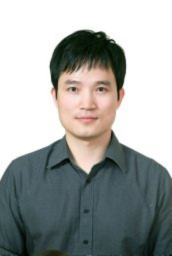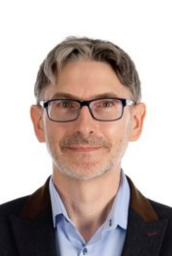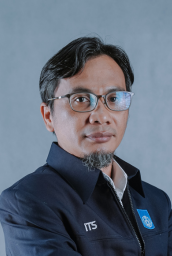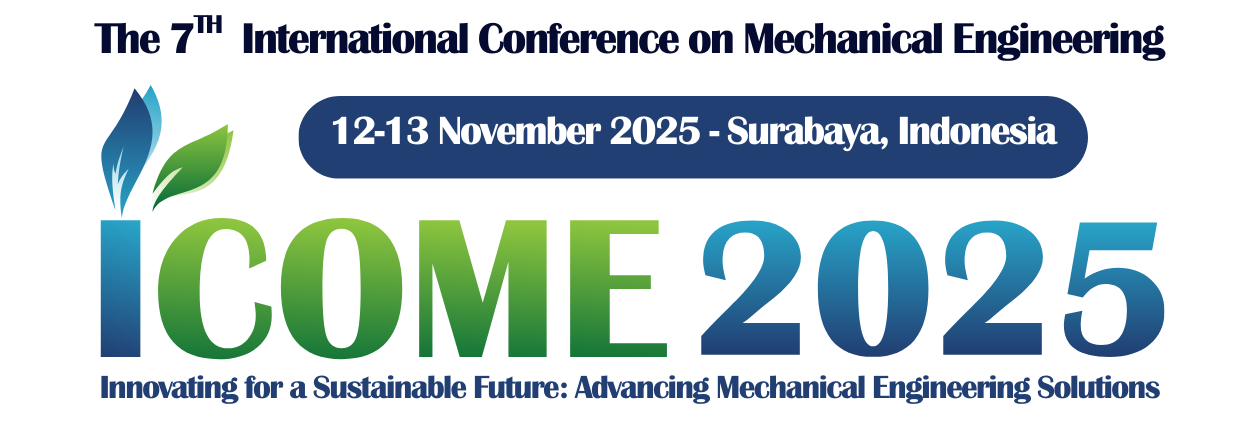Keynote Speaker 1 (confirmed)

Professor Ki Moo Lim
Professor in Computational Medicine,
Kumoh National Institute of Technology
Professor Ki Moo Lim is a highly esteemed academic at Kumoh National Institute of Technology (KIT) in South Korea, where he holds a prominent position as a professor in the Department of Medical IT Convergence Engineering. With a career built upon a foundation of excellence in biomedical engineering and computational medicine, Professor Lim has earned a reputation in practical biomedical applications. His educational journey began with a Ph.D. from Seoul National University, where he delved into biomedical research, particularly focusing on the role of computational techniques in advancing healthcare. After completing his doctoral studies, he further honed his expertise during a postdoctoral fellowship at the renowned Johns Hopkins University, a period that enriched his understanding of the intricate relationship between computational methods and medical challenges.
At Kumoh National Institute of Technology, Professor Lim leads the Computational Medicine Laboratory (CML), where he directs innovative research that pushes the boundaries of biomedical engineering. His primary research interests include cardiovascular modeling, assessing drug-induced arrhythmia risks, the development of artificial organs, and the use of machine learning in medical engineering. These research areas are not just theoretical but also aim to provide practical solutions that can directly improve clinical practices and patient outcomes. By blending computational models with real-world applications, Professor Lim’s work is helping to shape the future of healthcare by enabling more accurate diagnostics, personalized treatments, and the development of life-saving technologies.
Professor Lim’s academic achievements are vast, having authored over 100 peer-reviewed publications in prominent scientific journals. His contributions to the field of biomedical engineering have made him a highly respected figure in the global scientific community. His research has had a profound impact on both the theoretical and practical aspects of medical technology. His ability to blend computational science with practical medical applications has made him an invaluable voice in the ongoing evolution of healthcare technology
Abstract / Research Profile:
Professor Ki Moo Lim, a leading academic at Kumoh National Institute of Technology, brings a wealth of knowledge and experience to the field of biomedical engineering and computational medicine. With a Ph.D. from Seoul National University and postdoctoral training at Johns Hopkins University, his expertise lies at the intersection of computational modeling and biomedical research. He currently leads the Computational Medicine Laboratory at KIT, where his research focuses on applying computational models to solve critical medical challenges, such as cardiovascular disease modeling, drug-induced arrhythmia risk, and artificial organ development. Additionally, Professor Lim is dedicated to integrating machine learning techniques into biomedical engineering, further advancing the field and offering innovative solutions for patient care. Over the course of his career, Professor Lim has published more than 100 peer-reviewed papers, significantly contributing to both academic knowledge and practical applications in the healthcare sector. His work has garnered international recognition, with his expertise sought after at global conferences. Through his groundbreaking research and commitment to bridging the gap between computational techniques and biomedical applications, Professor Lim continues to push the boundaries of medical technology, making profound impacts on the way healthcare systems approach diagnosis, treatment, and patient care. This abstract highlights Professor Lim’s contributions to the field and underscores the importance of computational medicine in shaping the future of healthcare.
Keynote Speaker 2 (confirmed)

Professor Patrick Verdin
Professor in Energy Fluid Dynamics,
Cranfield University
Professor Patrick Verdin is a Professor in Energy Fluid Dynamics at Cranfield University. He has more than 20 years of expertise in Computational Fluid Dynamics (CFD) applied to Aerospace (icing), Oil & Gas (multiphase flows, mixing, flow separation, droplet transport, sand erosion), and Renewable Energy (geothermal, wind, tidal). After his MSc gained from the University of Sciences and Technologies of Lille (France), Patrick joined Cranfield University and completed a Ph.D. on Aircraft Icing, working on the development of the numerical ice prediction code ICECREMO2. His research work involved a collaboration with the main aircraft companies in the UK: Airbus UK, BAE Systems, Dunlop Aerospace (Meggitt), Rolls-Royce, QinetiQ, and Westland Helicopters (now AgustaWestland). He then carried out post-doctoral studies in multi-phase flows, working on the development of a CFD droplet transport model for ConocoPhillips (USA), in collaboration with Imperial College London, before becoming Research Fellow in 2008.
Patrick became successively Senior Research Fellow, Lecturer, Senior Lecturer, then professor. Throughout his academic career, he has been involved in Research and commercial activities at National and International levels. Several of the recent and current projects he has been leading funded research in, include the European programmes SAFUEL (Safer Fuel System), and EMRP I & II (European Metrology Research Programme), UK-funded research on HOSE (Hydrodynamic Oil Sample Extraction), Forced Convection Heat Transfer in Unconventional Geothermal Systems, Oil-Water Slug Flow in Export Pipelines, and Wet Gas Flowmeter Performance by CFD modelling. He has also been recently involved in the development and the CFD verification of an innovative offshore wind turbine, has been working on the design of wind panels, on the design and CFD study of a particle reduction system, and on numerical studies of oxygen masks. He is currently actively involved in the design of an innovative small-scale vertical axis wind turbine.
Abstract / Research Profile:
Professor Patrick Verdin, a Professor in Energy Fluid Dynamics at Cranfield University, UK, has over 20 years of expertise in single and multiphase flow systems using CFD. He specializes in aircraft, oil & gas, and renewable energy model and numerical code creation. Professor Verdin directed and completed several research and consultancy projects, including the creation of the ICECREMO2 ice prediction algorithm, which simulates aircraft wing and fuel system aerodynamics with major UK aerospace firms. A major US petrochemical business relied on him to design a droplet transport and deposition model for 38-inch pipes. His multiphase flow research has tackled important challenges such slug and annular flows, liquid-liquid flows, flow separation, sand erosion, and wet gas flows. Geothermal, tidal, wave, floating solar, and offshore wind energy projects are among his many renewable energy contributions. Professor Verdin has two multiphase flow patents, GB251135 (2018) for a jet pump apparatus and GB2564449 (2019) for an injected fluid control valve. These innovations demonstrate his contribution to industrial CFD. Dr. Verdin also mentors 15 PhD applicants and has completed 11 PhDs. In addition, he directed Cranfield University’s MSc programs in Energy & Sustainability, Offshore Engineering, and Energy Systems & Thermal Processes. Professor Verdin is a leading researcher with over 70 peer-reviewed journal articles, conference papers, technical reports, and patents. He studies computational performance of offshore wind turbine blades, energy conversion system modeling, and fluid flow in unusual geothermal systems. He is a member of the European Mechanics Society and the UK Fluid Network and a visiting lecturer at ESTIA (France), Muscat University (Oman), and Jiangsu University (China). Professor Verdin has contributed to important aerospace, oil & gas, and energy initiatives in addition to his academic work. His CFD and multiphase flow system research has improved energy systems and advanced sustainable technology.
Keynote Speaker 3 (confirmed)

Prof. Suwarno, S.T., M.Sc., Ph.D.
Professor in Mechanical Engineering,
Institut Teknologi Sepuluh Nopember
Prof. Suwarno, S.T., M.Sc., Ph.D. is a distinguished academic and expert in the field of mechanical engineering at Institut Teknologi Sepuluh Nopember (ITS), Surabaya. His career is marked by a deep commitment to both research and teaching, particularly within the Department of Mechanical Engineering, Faculty of Industrial Technology. He plays a pivotal role in guiding undergraduate students through the completion of their theses, ensuring rigorous academic standards and fostering a culture of scientific inquiry. Throughout his tenure at ITS, Prof. Suwarno has contributed significantly to the development of engineering education and research. His expertise encompasses a range of topics, including materials science, mechanical systems, and industrial technology. He is frequently acknowledged in undergraduate theses for his invaluable guidance and support, reflecting his dedication to mentoring the next generation of engineers and researchers. His academic credentials, which include advanced degrees and a Ph.D., underscore his authority in the field and his ability to lead complex research initiatives. Beyond his academic responsibilities, Prof. Suwarno is also known for his collaborative approach, working closely with colleagues and students alike to advance knowledge in mechanical engineering. His involvement in research projects and academic coordination demonstrates his leadership and his ongoing commitment to excellence at ITS. Through his work, Prof. Suwarno has made a lasting impact on both the academic community and the broader field of engineering in Indonesia.
Abstract / Research Profile:
Prof. Suwarno, S.T., M.Sc., Ph.D is a highly respected academic and senior lecturer at the Department of Mechanical Engineering, Institut Teknologi Sepuluh Nopember (ITS), Surabaya, Indonesia. With an extensive background in materials science, mechanical systems, and industrial technology, he has established himself as a leading figure in engineering education and research at the university. Prof. Suwarno is renowned for his dedication to mentoring students, where he provides comprehensive guidance and support throughout the thesis process. His commitment to academic excellence is evident in his active involvement in curriculum development, research supervision, and the fostering of a collaborative academic environment. Over the years, Prof. Suwarno has contributed to numerous research projects and publications, further enhancing the reputation of ITS as a center for innovation and scientific advancement. His expertise, leadership, and unwavering support for students and colleagues alike have made him an integral part of the university’s academic community and a driving force in the development of Indonesia’s engineering sector.
